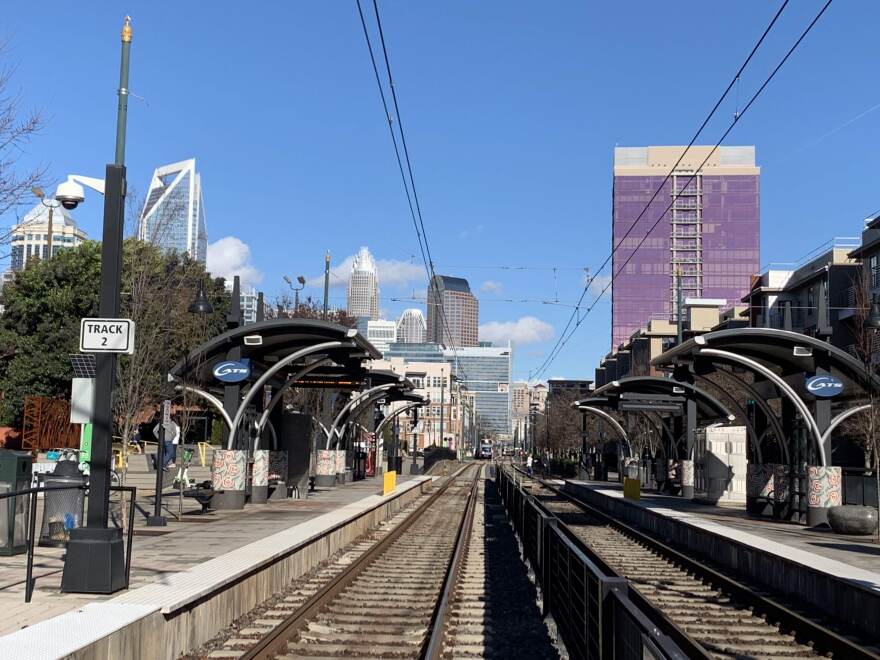Earlier this year, city planning director Taiwo Jaiyeoba cited poll results to paint an optimistic picture of support for a penny sales tax increase to fund an $8 to $12 billion transportation plan.
But the presentation left out some results that weren’t as favorable to the Charlotte MOVES Task Force plan. One was that Mecklenburg County residents who don't live in Charlotte prefer road funding to providing money for public transportation. Another result left out: Transportation isn’t at the top of voters' priority lists.
Jaiyeoba discussed the poll results with the media and City Council in February.
His presentation came as the mayors of the north Mecklenburg towns were expressing frustration that they haven’t received enough benefits from the existing half-cent sales tax for transit, approved by voters in 1998.
The city did not release a full copy of the poll results and questions when asked by WFAE earlier this year. The city said it didn’t have the poll, which was conducted by the National Resources Defense Council Action Fund. City spokesman Cory Burkarth said “it wouldn’t be appropriate to use a city employee and taxpayer resources” to request the full poll from the group.
This month, though, the National Resources Defense Council Action Fund released the full results to WFAE “to provide transparency.” The full poll can be viewed below.
The National Resources Defense Council Action Fund told WFAE Thursday that it didn't share the full results with the city and that Jaieyeoba didn't withhold any information.
While the full poll showed that Jaiyeoba’s numbers were accurate, it also showed areas of concern for the plan that weren't in his presentation. They include:
“Improving public transit and traffic congestion” was the fourth-ranked priority of people surveyed, behind improving public education, reducing crime, and reducing government spending. It was ahead of the environment.
Asked how best to spend money on traffic transportation infrastructure, the most popular option among respondents was “road and traffic congestion projects,” with a mean response of 7.9 on a scale of 1-10. That was ahead of greenways (6.8), improving sidewalks/pedestrian spaces (6.8), light rail expansion (6.3), and bus routes (6.1).
Rail transit and buses would receive the biggest share of the $8 to $12 billion Charlotte MOVES plan. The plan calls for spending on roads, but there are no specific road projects listed for north Mecklenburg County.
For transit supporters, the most optimistic result was that a majority of people surveyed are in favor of the plan.
The poll question told people: “The plan would cost between $8-12 billion over 30 years. Half of the money would come from the federal and state government. The other half would come from the county, and city levels, via existing taxes or fees as well as potential increases in taxes and fees. These funds would be used over the next 10 years to establish new bus routes with priority bus-only lanes, install light rail lines, build greenways where walkers and bikers can go long distances without worrying about vehicles, improve sidewalks and pedestrian spaces, and finance construction projects to decrease traffic congestion.”
The poll found that 57% favor that idea while 38% are in opposition.
The city had hoped to place the transit referendum on the November ballot this year. But the city hasn’t formally asked the North Carolina General Assembly for permission to raise the sales tax. That means any decision on the Charlotte MOVES plan will likely be in 2022 or later.


